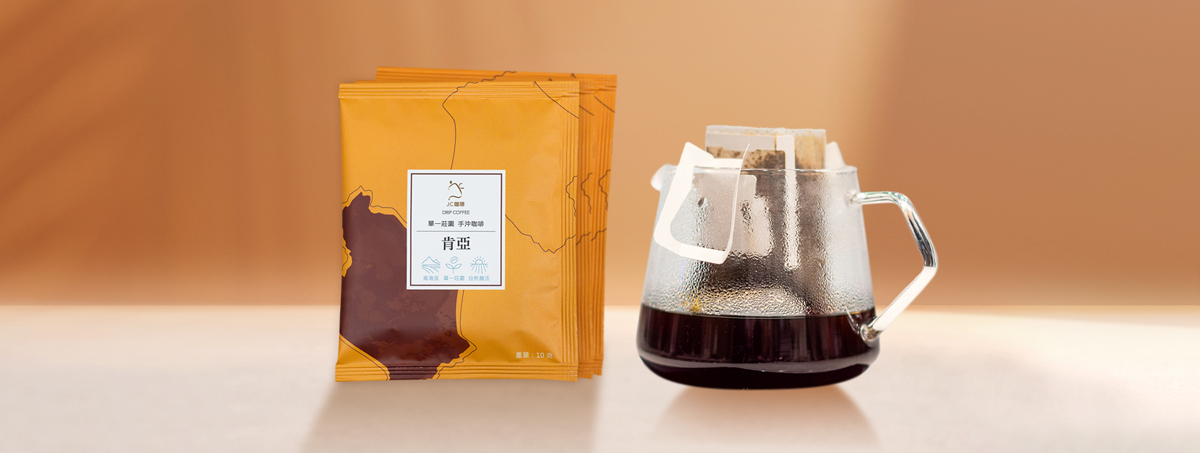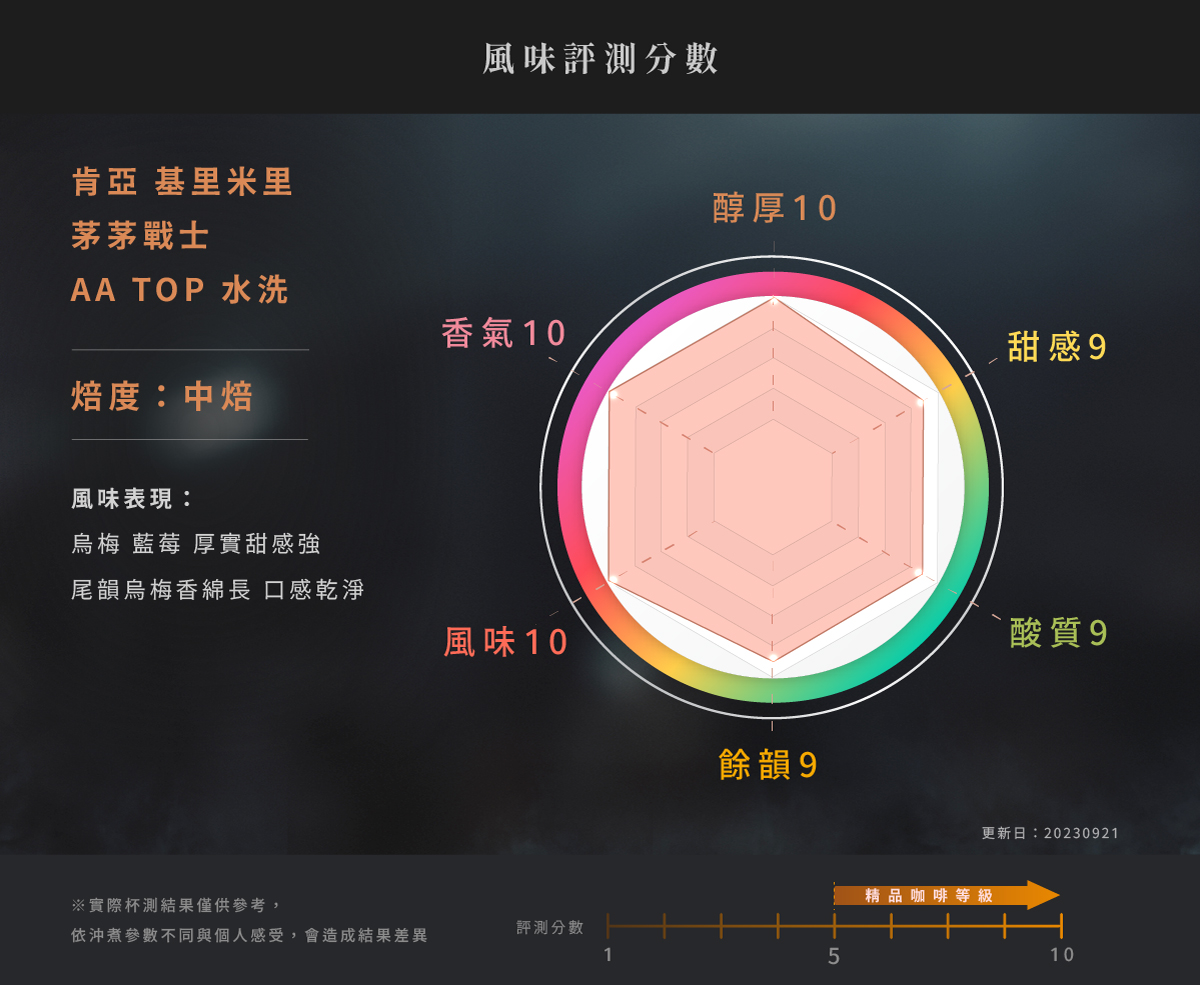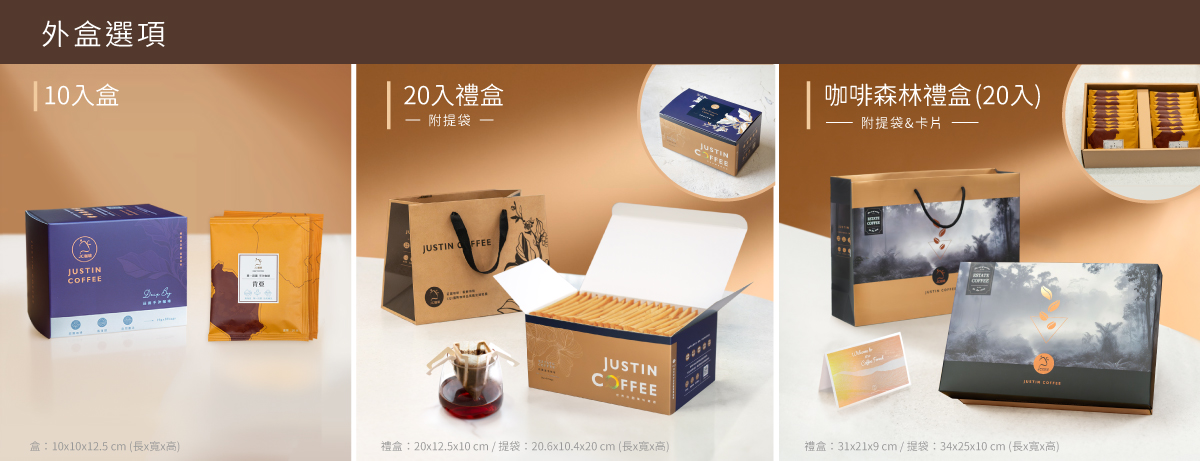
✔Freshly Roasted Coffee Bean Specialty Store ✔CQI internatinal coffee quality appraiser quality control ✔Million-dollar Coffee Bean Sorting Machine Removes Defective Beans ✔Deoxygenation Preservation


Single Estate Drip Coffee- Kenya Embu Kirimiri Forest AA TOP Washed


Coffee Forest Gift Box & 20-Pack Gift Box include a gift bag (For the 10-pack box, a gift bag is available for additional purchase).
Order Guidelines (Convenience Store Pickup):
10-Pack Box: Maximum of 10 boxes per convenience store pickup, no other items included (For 11 boxes or more, please select home delivery).
20-Pack Gift Box: Maximum of 5 boxes per convenience store pickup, no other items included (For 6 boxes or more, please select home delivery).
Coffee Forest Gift Box: Maximum of 3 boxes per convenience store pickup, no other items included (For 4 boxes or more, please select home delivery).







Coffee Flavor
The flavors of coffee are derived from the breakdown of various nutrients in the green coffee beans during roasting. Heat causes these compounds to degrade into a variety of aromatic molecular structures, resulting in a wide spectrum of flavors. High-quality coffee beans naturally possess a rich aroma that evolves at different temperatures—high, medium, and low—offering a delightful and nuanced experience worth savoring.
Kenya Embu Kirimiri Forest AA TOP Washed
Black Plum, Blueberry, Rich and Intense Sweetness, Long-Lasting Black Plum Aftertaste, Clean Finish.

Kenya is a prominent producer of East African specialty coffee, with a population of approximately 6 million engaged in the coffee industry, predominantly through smallholder farmers and cooperative societies. Kenyan coffee trees are primarily cultivated at altitudes between 1,400 meters and 2,000 meters, spanning regions including Ruiri, Thika, Kirinyaga, Mt. Kenya West, Nyeri, Kiambu, and Murang'a, with a focus on the foothills of Mt. Kenya and the Aberdare ranges. The main coffee-growing areas encircle Mount Kenya, each possessing its unique regional flavor profiles. For instance, the Nyeri region is renowned for its blackcurrant and prune flavors.
Many coffee-growing regions in Kenya strive to preserve their native forest ecosystems, protecting the natural gene pool and supporting the propagation of wild coffee varieties, thereby fostering diverse coffee trees. In 1930, the unique Kenyan coffee varieties SL28 and SL34 were developed and named by the Scott Laboratories. These varieties emerged in such a conducive environment, benefiting from the region’s commitment to maintaining a healthy and diverse coffee ecosystem.
Many coffee-growing regions in Kenya strive to preserve their native forest ecosystems, protecting the natural gene pool and supporting the propagation of wild coffee varieties, thereby fostering diverse coffee trees. In 1930, the unique Kenyan coffee varieties SL28 and SL34 were developed and named by the Scott Laboratories. These varieties emerged in such a conducive environment, benefiting from the region’s commitment to maintaining a healthy and diverse coffee ecosystem.
The Kirimiri Forest spans 800 hectares and is located on the southeastern slopes of Mount Kenya (5,199m) in Embu County. In recent years, due to the rampant deforestation of its unique native and medicinal tree species, it has been designated as an ecologically sensitive area in Africa by the International Union for Conservation of Nature (IUCN).
These forests hold significant historical and cultural value for Kenya. They are situated between the Gitare region and the Enna River, approximately 10 kilometers apart.
A total of 850 smallholder farmers from New Kirimiri FCS cultivate coffee at an average altitude of 1,700m. More than 95% of the SL28 and SL34 varieties undergo fully washed processing, double fermentation, and sun-drying on African raised beds.
Expect intense floral aromas, vibrant berry and peach notes, with a long-lasting and sweet aftertaste.

Arabica Coffee Variety – SL34
SL34 is an artificial hybrid variety derived from Bourbon in Kenya and Tanzania, developed alongside SL28. Both are well-known for their excellent flavor profiles. While Bourbon has a higher yield compared to Typica, it still has a two-year harvesting cycle, making it a relatively low-yield variety. SL28 and SL34 are iconic Kenyan coffee varieties developed and named by Scott Laboratories (SL) in the 1930s. SL28 carries the lineage of Bourbon, Mokka, and Typica. The original goal of developing SL28 was to produce a high-quality coffee variety that could resist pests and diseases. Although SL28's yield was not as abundant as anticipated, it gained recognition for its excellent sweetness, balance, and complex flavors, with distinctive notes of citrus and dried plum.
SL34, while similar in flavor to SL28, offers a richer and cleaner taste. It has Bourbon heritage and a stronger Typica lineage, making it better suited to withstand heavy rains and challenging weather conditions.
Kenyan coffee flavors are classified into three grades: TOP, PLUS, and FAQ, in descending order. This batch is of the highest grade—TOP!
Kenyan coffee is also graded by bean size, with the three most common grades being AA, AB, and PB.
------
Justin Coffee carefully selects various Arabica varieties to craft drip coffee, including Villa Sarchi, Heirloom, Bourbon, Typica, Caturra, Pacas, SL28, SL34, Tim Tim, and other world-renowned specialty coffee varieties.
To enhance your coffee experience, Justin Coffee prints the bean variety information on the packaging, allowing you to know which coffee variety you are savoring. While flavors may vary due to multiple factors, this gives us a glimpse into the vast and diverse world of coffee beans.

(Coffee Processes)
The term "processing methods" refers to the process of transforming ripe red coffee cherries into dried green beans. Each method has its advantages and disadvantages, influenced by the natural environment and the specific needs of the coffee-producing region. As a result, different regions adopt the processing method most suited to their conditions. This batch uses washed processing methods, described below:
【Washed / Wet Processed】
Also known as the wet process, this method involves removing the skin and pulp of the coffee cherries before drying. The seeds are then fermented in water tanks to eliminate the remaining mucilage on their surface, followed by thorough washing and drying under sunlight or with mechanical dryers.
The washed process produces a cleaner and crisper flavor profile compared to the natural process. Coffees processed this way typically have lighter body, brighter acidity, and distinct fruit flavors. This method is often associated with specialty coffee due to its clarity and vibrant flavor expression.



JUSTIN INTERNATIONAL FOOD ENTERPRISE CO., LTD.
Tel: +886-3-358-6611
1st Floor, No. 30, Lane 120, Daxing Road, Taoyuan District, Taoyuan City
▶This product is covered by a NT$10 million product liability insurance.
▶Food Industry Registration Number: F-165601955-00000-0
▶ Our company’s cupper is certified as a CQI International Coffee Quality Appraiser.



Recommended Products

※ 台灣本島 超商取貨須知-限重5Kg (國外配送無此限制) :
※ 詳細出貨及付款說明、發票、海外訂購須知...等,請 點擊進入
